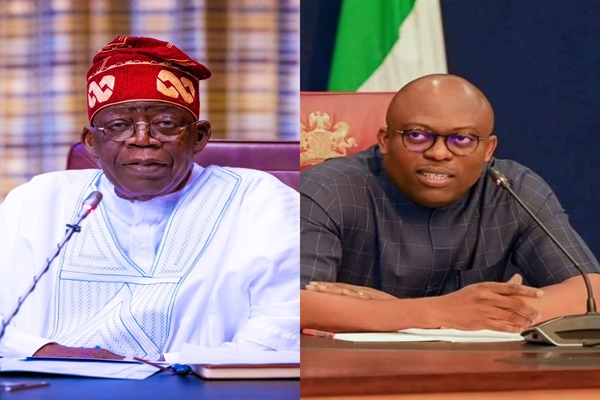Wednesday’s national broadcast by President Bola Tinubu announcing the cessation of the state of emergency in Rivers State has been described as an act of obstinacy in the face of a clear constitutional breach, illegality, and undemocratic overreach.
This is according to a rights group, the Rule of Law and Accountability Advocacy Centre, RULAAC.
Recall that on 18th March, 2025, the President had declared a state of emergency in the state, highlighting what it tagged ‘a total paralysis of governance in Rivers State, which had led to the Governor of Rivers State and the House of Assembly being unable to work together.’
President Tinubu had gone ahead to swear in Vice Admiral Ibok-Ete Ekwe Ibas, as the sole administrator to oversee the administration of the state for six months.
However, in a broadcast on Wednesday, Tinubu announced the reinstatement of Governor Simi Fubara and the State House of Assembly, expressing confidence that there is a new spirit of understanding, a robust readiness, and potent enthusiasm on the part of all the stakeholders in Rivers State for an immediate return to democratic governance.
But, in an exclusive chat with The News Chronicle correspondent, the Executive Director of RULAAC, Okechukwu Nwanguma said nothing in the President’s speech justifies the dismantling of democratic institutions in Rivers State, which he noted, was in brazen violation of the 1999 Constitution.
According to him, the suspension of an elected governor, deputy governor, and the entire legislature had no constitutional foundation, and was ‘a naked power grab dressed up as restoring order.’
He faulted the alleged complicity of the National Assembly in endorsing the emergency rule, adding that it only deepens the injury to Nigeria’s democracy.
“Instead of defending the sanctity of the Constitution, lawmakers chose to rubber-stamp executive recklessness, becoming willing collaborators in this rape of democracy.
“Even if the judiciary, cowed or compromised, fails to rise to its constitutional duty, history will not be deceived. Judicial silence or delayed rulings cannot alter the fact that the President’s actions remain unconstitutional, undemocratic, and dangerous.
“History has taken note, and history’s judgment will override every other judgment,” he emphasized.
Nwanguma further pointed out that what happened in Rivers State was a sharp warning that “democracy in Nigeria remains fragile, endangered not only by soldiers in uniform but by civilian rulers who trample on the Constitution they swore to uphold.
“The Nigerian people and the international community must not normalize this illegality. Silence is complicity.”



